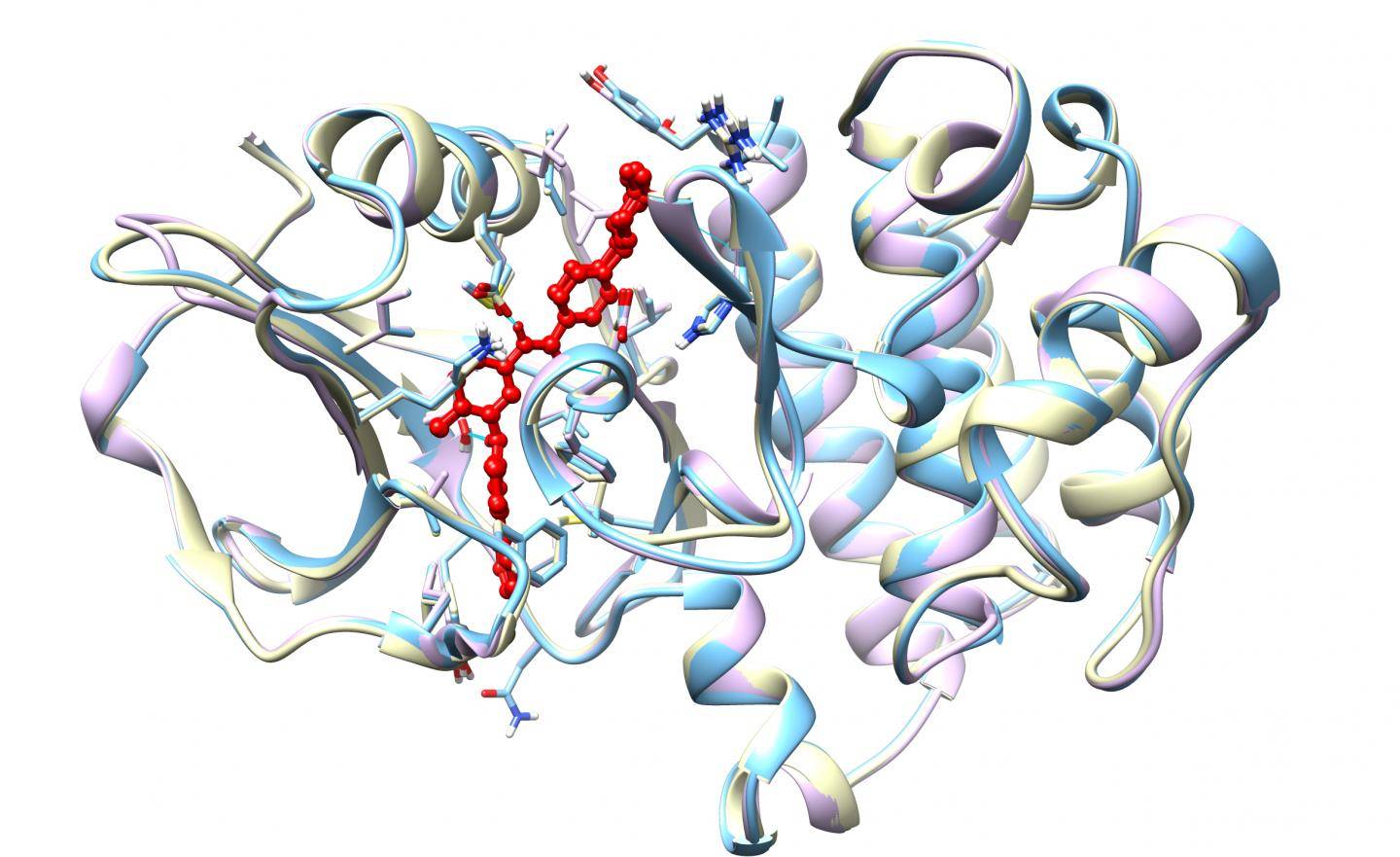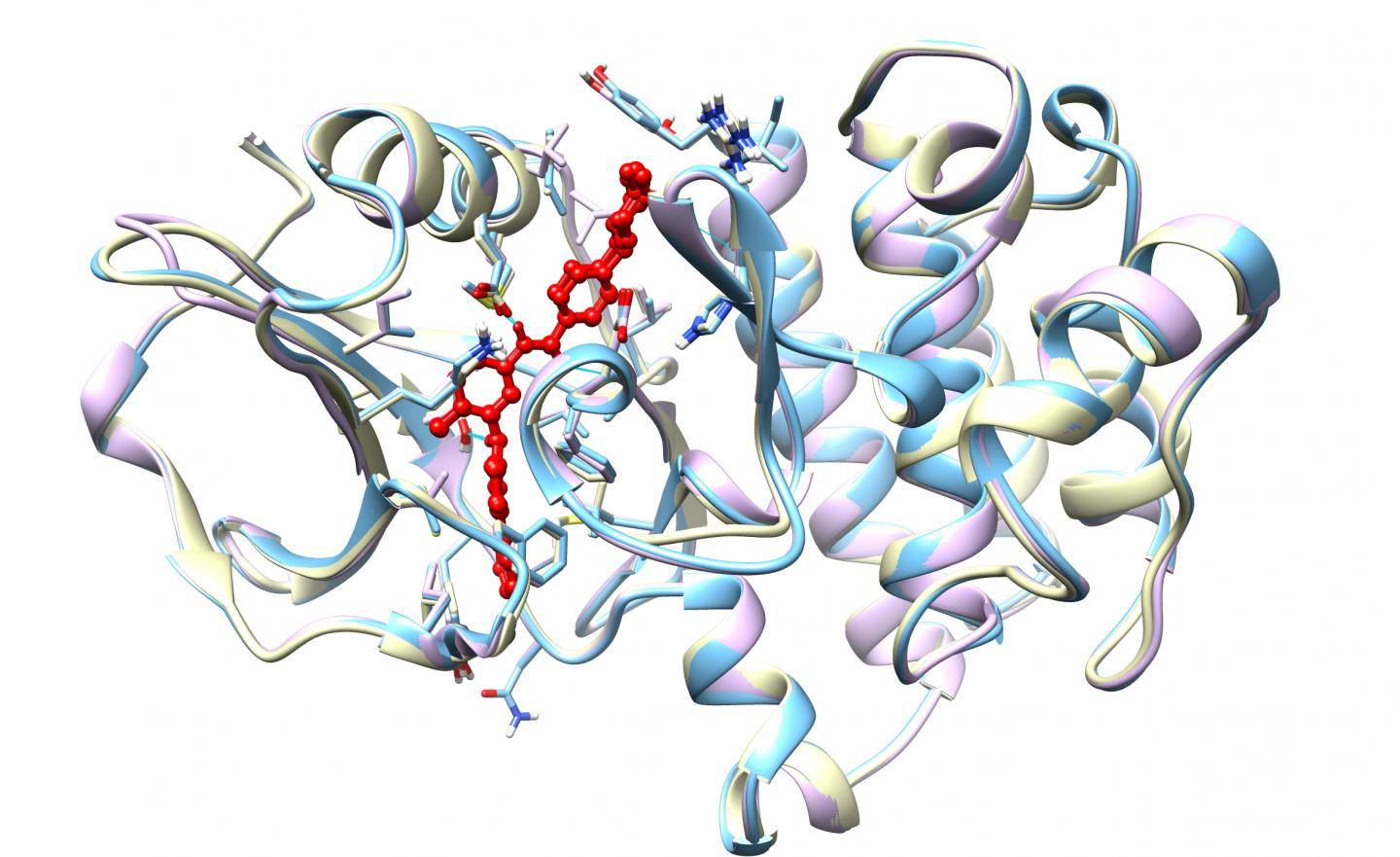
Credit: E. Oricchio/EPFL
Non-Hodgkin lymphomas are cancers that affect white blood cells of the immune system called B-lymphocytes or B cells. Like cells in all cancers, the B cells begin to grow out of control, creating tumors in the lymph nodes, spleen or other tissues. In 2010 alone, it was estimated that non-Hodgkin lymphomas caused 210,000 deaths worldwide.
One of the driving forces behind non-Hodgkin lymphomas is the over-activation of a receptor on the surface of B cells. This receptor normally stimulates the growth of B-cells only when it is needed, but in non-Hodgkin lymphoma, the growth signal is constantly on, making B-cells grow uncontrollably.
To block this signal, recent clinical studies have focused on inhibiting the activation of the B-cell receptor as a treatment for non-Hodgkin lymphoma patients, but with variable success. For example, a drug called ibrutinib has been tested in clinical trials to treat an aggressive form of non-Hodgkin lymphoma, diffuse large B-cell lymphoma (DLBCL). Ibrutinib blocks the enzyme BTK (Bruton's tyrosine kinase), which is involved in maturing and activating B cells as part of the B-cell receptor's signaling pathway. Unfortunately, the response to ibrutinib has been limited only to a subgroup of DLBCL patients.
The lab of Elisa Oricchio at EPFL has now carried out a study to identify mechanisms of resistance to ibrutinib. Using tumor cells from DLBCL patients, the scientists discovered that the inactivation of BTK in resistant tumors triggers the over-activation of alternative signals that promote tumor cell survival and proliferation.
To prevent this mechanism of resistance and block the B-cell receptor signaling at its root, Elena Battistello, the PhD student who led this project, targeted the three enzymes (LYN, FYN, and BLK) that initiate the propagation of the signals.
The scientists discovered that blocking these enzymes with a drug called masitinib completely ablated the B-cell receptor pro-tumorigenic signals. In addition, masitinib strongly impaired tumor growth in all of the DLBCL patient-derived tissues that the team tested.
The authors, who are now planning to begin clinical trials based on this study, state that the three enzymes can be promising therapeutic targets for a diverse and broad group of DLBCL patients.
###
Contributors
University of Lausanne
Swiss Institute of Bioinformatics
Dana-Farber Cancer Institute
Lausanne University Hospital (CHUV)
Ludwig Institute for Cancer Research (UNIL)
EPFL animal, flow cytometry, histology, and sequencing facilities
Reference
Elena Battistello, Natalya Katanayeva, Elie Dheilly, Daniele Tavernari, Maria C. Donaldson, Luca Bonsignore, Margot Thome-Miazza, Amanda L. Christie, Mark A. Murakami, Olivier Michielin, Giovanni Ciriello, Vincent Zoete, Elisa Oricchio. Pan-SRC kinase inhibition blocks B-Cell Receptor oncogenic signaling in Non- Hodgkin Lymphoma. Blood 22 March 2018. DOI: 10.1182/blood-2017-10-809210
Media Contact
Nik Papageorgiou
[email protected]
41-216-932-105
@EPFL_en
http://www.epfl.ch/index.en.html
Related Journal Article
http://dx.doi.org/10.1182/blood-2017-10-809210





